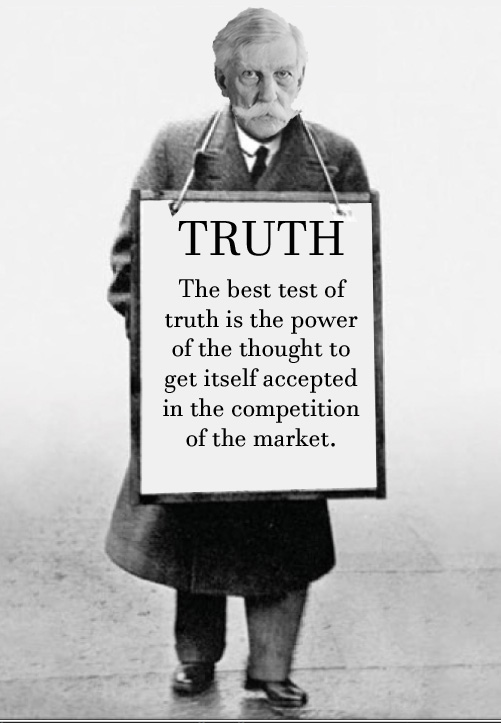A Free Market is Always Full of Cheap Ideas I may have scoffed in the past at the notion of “the marketplace of ideas” but I am coming around to think that maybe it’s not such a bad metaphor. Back in the days of primitive economy, families, clans, tribes produced and consumed their own subsistence. If a surplus was produced beyond what was to be set aside for contingencies, it might be given as a gift to a neighboring group, setting up the obligation of a reciprocal gift. Eventually, gift exchange was supplemented and/or supplanted by barter. What was traded, though, was still the superfluous produce after the group had met its own needs. Production for markets only gradually encroached upon production for need that incidentally produced a
Topics:
Sandwichman considers the following as important: Featured Stories, free markets, marketplace of ideas, politics, US EConomics, US/Global Economics
This could be interesting, too:
Robert Skidelsky writes Lord Skidelsky to ask His Majesty’s Government what is their policy with regard to the Ukraine war following the new policy of the government of the United States of America.
NewDealdemocrat writes JOLTS revisions from Yesterday’s Report
Joel Eissenberg writes No Invading Allies Act
Ken Melvin writes A Developed Taste
A Free Market is Always Full of Cheap Ideas

I may have scoffed in the past at the notion of “the marketplace of ideas” but I am coming around to think that maybe it’s not such a bad metaphor. Back in the days of primitive economy, families, clans, tribes produced and consumed their own subsistence. If a surplus was produced beyond what was to be set aside for contingencies, it might be given as a gift to a neighboring group, setting up the obligation of a reciprocal gift.
Eventually, gift exchange was supplemented and/or supplanted by barter. What was traded, though, was still the superfluous produce after the group had met its own needs. Production for markets only gradually encroached upon production for need that incidentally produced a surplus. In societies dominated by capital, superfluous production became a condition for necessary production.
In such societies, “superfluous” speech — advertising, propaganda, entertainment — also became a condition for communication of “truth” — or at least “news.” Thus, the metaphor of the “marketplace of ideas” is not so outlandish — it just doesn’t mean what Oliver Wendell Holmes presumably thought it meant. There is no “one man, one voice” competition. Instead, monopolies of word and image determine what will be heard and seen the most. As A. J. Liebling wrote, “freedom of the press is limited to those who own one.”
Social media has created the illusion that anybody can become a celebrity in a viral heartbeat as if the circuits of social media amplification were not as dominated by advertising, propaganda, and entertainment as any television network. What the competition of the market tests, though, is not the “truth” of ideas but their marketability. That is to say, their superfluity relative to truth.
